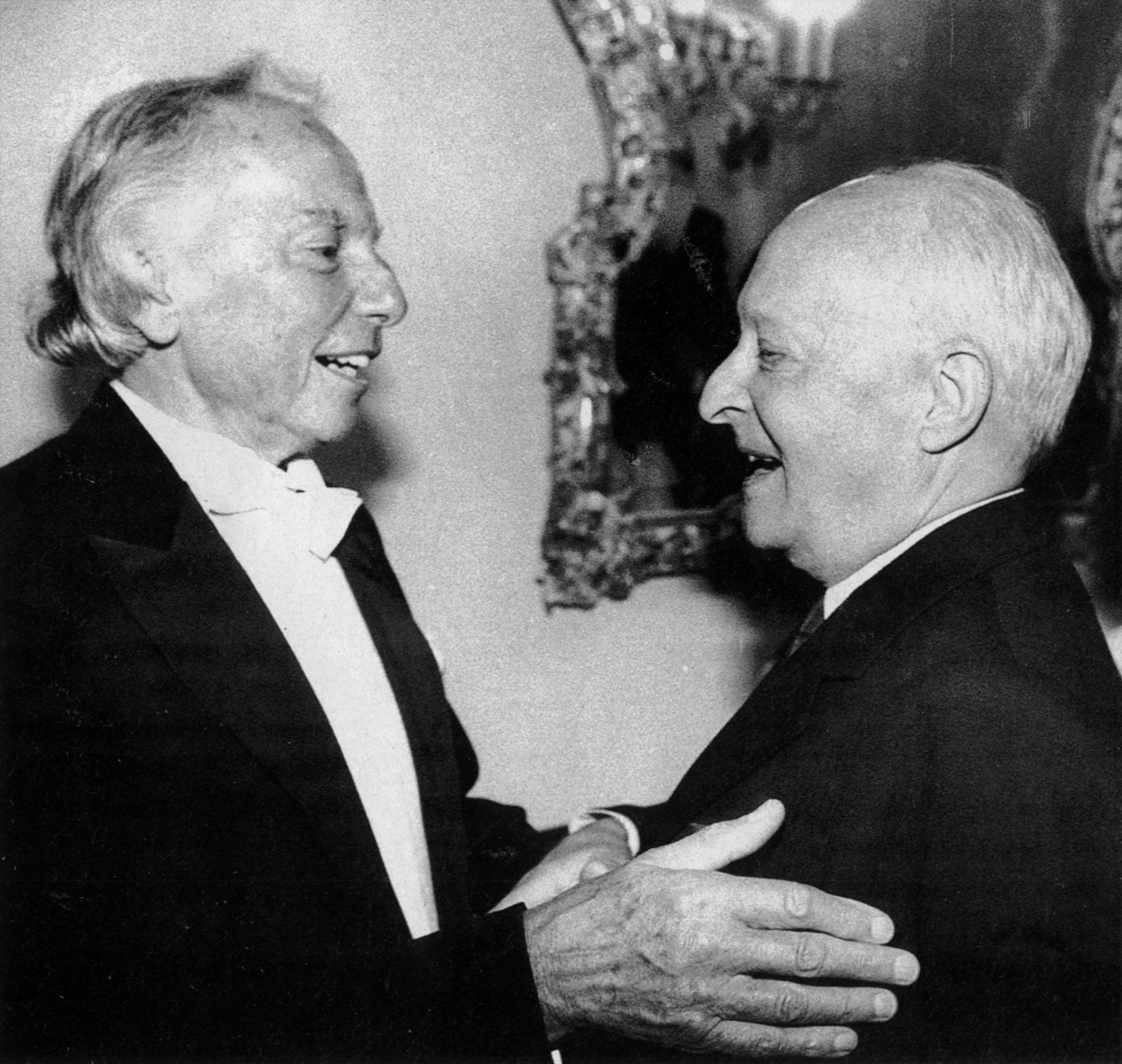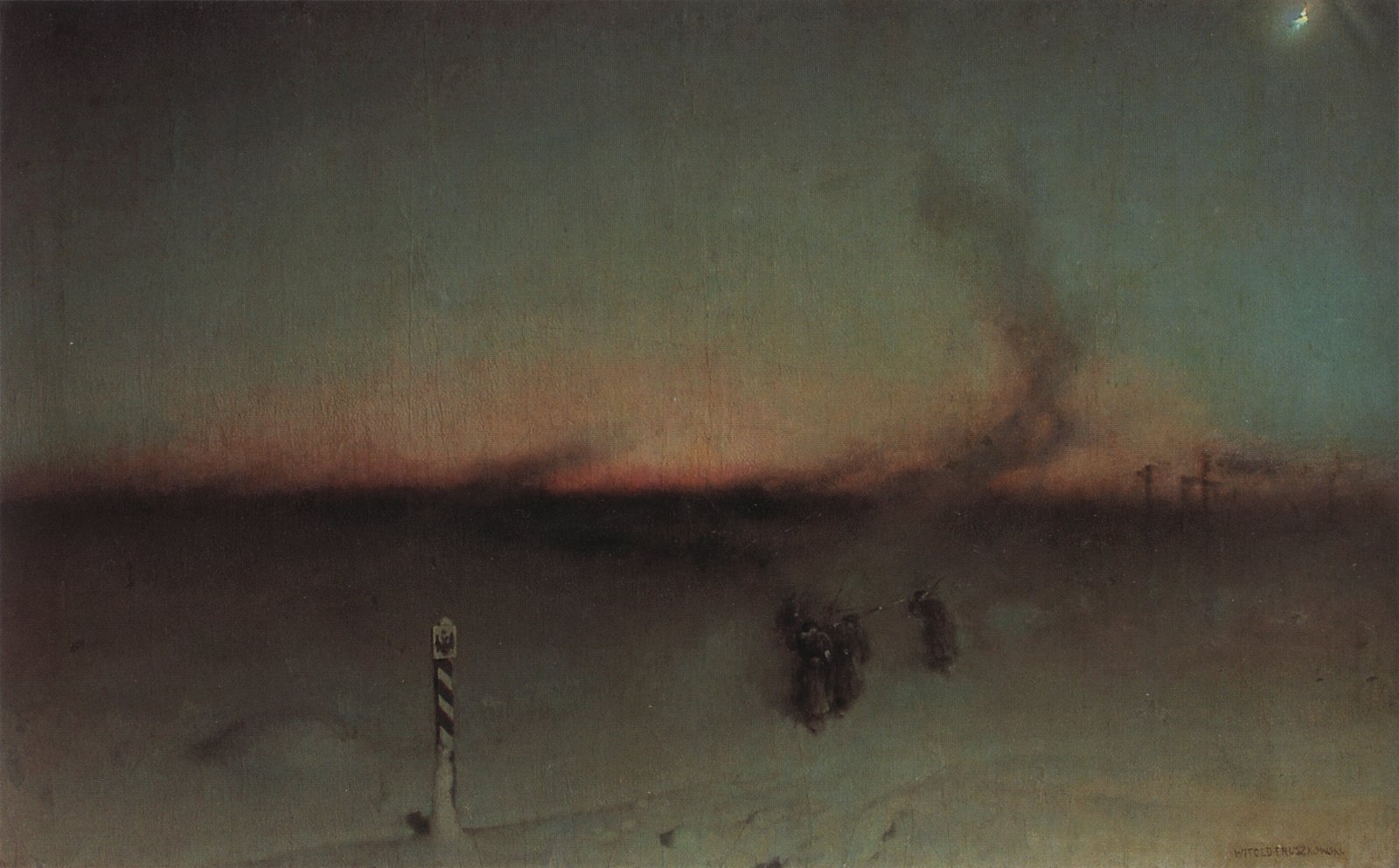|
Witold (given Name)
Witold is a masculine Polish given name. This name derives from the Lithuanian “Vytautas” composed of two elements: “vyti” (chase) plus “tauta” (the people), but It is also possible that it is a name of Germanic origin which means "ruling the forest". Notable people with the name include: *Witold, ''nom de guerre'' used by Jan Karski (1914-2000), Polish resistance-fighter soldier and professor *Witold Baran (born 1939), Polish middle distance runner *Witold Gombrowicz (1904–1969), Polish novelist and dramatist *Witold Hurewicz (1904–1956), Polish mathematician * Witold Kiełtyka (1984-2007), Polish drummer, founder of death metal band Decapitated (band) * Witold Kieżun (1922–2021) Polish economist, participant of the Warsaw Uprising *Witold Lutosławski (1913–1994), Polish composer *Witold Małcużyński (1914–1977), Polish pianist *Witold Pilecki (1901–1948), founder of the Secret Polish Army (Tajna Armia Polska) * Witold Pruszkowski (1846–1896), Pol ... [...More Info...] [...Related Items...] OR: [Wikipedia] [Google] [Baidu] |
Vytautas (other)
Vytautas (c. 1350–1430) was a Lithuanian medieval king, Grand Duke, Prince of Hrodna and Prince of Lutsk. Vytautas may also refer to: *Vitas, a diminutive form of the given name *Vytautas Magnus University, a public university in Kaunas, Lithuania founded in 1922 *Vytautas the Great Bridge, a bridge in Kaunas, Lithuania that crosses the Nemunas River *Vytautas' the Great Church, a Roman Catholic church in Kaunas, Lithuania consecrated in 1400 *Vytautas the Great War Museum, a museum in Kaunas, Lithuania opened in 1936 * BC Vytautas, basketball team from Prienai, Lithuania People with the given name *Vytautas Andriuškevičius (born 1990), Lithuanian footballer *Vytautas Apanavičius (born 1973), Lithuanian football midfielder *Vytautas Babravičius or Simas (born 1952), Lithuanian country and folk rock musician *Vytautas Bacevičius (1905–1970), Lithuanian composer *Vytautas Barkauskas (born 1931), Lithuanian composer and music educator *Vytautas Beliajus (1908-1994), Lithuan ... [...More Info...] [...Related Items...] OR: [Wikipedia] [Google] [Baidu] |
Witold Lutosławski
Witold Roman Lutosławski (; 25 January 1913 – 7 February 1994) was a Polish composer and conductor. Among the major composers of 20th-century classical music, he is "generally regarded as the most significant Polish composer since Szymanowski, and possibly the greatest Polish composer since Chopin". His compositions—of which he was a notable conductor—include representatives of most traditional genres, aside from opera: symphonies, concertos, orchestral song cycles, other orchestral works, and chamber works. Among his best known works are his four symphonies, the Variations on a Theme by Paganini (1941), the Concerto for Orchestra (1954), and his cello concerto (1970). During his youth, Lutosławski studied piano and composition in Warsaw. His early works were influenced by Polish folk music and demonstrated a wide range of rich atmospheric textures. His folk-inspired music includes the Concerto for Orchestra (1954)—which first brought him international renown ... [...More Info...] [...Related Items...] OR: [Wikipedia] [Google] [Baidu] |
Witold Tomczak
Witold Stanisław Tomczak (born 5 April 1957, in Kępno) is a far right Polish politician, a member of the European Parliament 2004–2009. Before his political career, Tomczak worked as a physician He graduated from the Medical University of Silesia in Katowice in 1987 and specialized in general medicine. He practiced as a family physician in Łęka Opatowska near Kalisz, where he was a local councilman from 1990 through 1998. From 1997 to 2001, he was a Sejm member for the conservative party Christian-National Union (ZChN), which at that time was part of the Solidarity Electoral Action party (AWS). He left the AWS in 1999 to co-found the Polish Agreement party. In 2001, he ran on the ticket of the then newly established League of Polish Families in the Kalisz constituency and won a seat again. Before Poland's EU accession, Tomczak served as a Polish observer to the European Parliament. In 2004, he was elected to the European Parliament in the Greater Poland Voivodship const ... [...More Info...] [...Related Items...] OR: [Wikipedia] [Google] [Baidu] |
Witold Rybczynski
Witold Rybczynski (born 1 March 1943) is a Canadian American architect, professor and writer. He is currently the Martin and Margy Meyerson Professor Emeritus of Urbanism at the University of Pennsylvania. Early life Rybczynski was born in Edinburgh of Polish parentage and raised in Surrey, England, before moving at a young age to Canada. He attended Loyola College in Montreal. He received Bachelor of Architecture (1966) and Master of Architecture (1972) degrees from McGill University in Montreal. Career Rybczynski has written around 300 articles and papers on the subjects of housing, architecture, and technology, many of which are aimed at a non-technical readership. His work has been published in a wide variety of magazines, including ''The Wilson Quarterly'', ''The Atlantic Monthly'', and ''The New Yorker''. From 2004 to 2010, he was architecture critic for ''Slate''. He taught at McGill University (1974–1993) and the University of Pennsylvania (1993–2012), and serve ... [...More Info...] [...Related Items...] OR: [Wikipedia] [Google] [Baidu] |
Witold Pruszkowski
Witold Pruszkowski (14 January 1846, Bershad - 10 October 1896, Budapest) was a Polish painter and graphic artist in the Symbolist style. Biography He spent his childhood in Odessa and Kiev. The family emigrated to Dieppe in 1860, and he relocated to Paris in 1866, where he had his first drawing lessons with the portrait painter, Tadeusz Gorecki, the son-in-law of Adam Mickiewicz. From 1869 to 1872, he studied at the Academy of Fine Arts, Munich with Alexander von Wagner then, from 1872 to 1875, at the Kraków Academy of Fine Arts with Jan Matejko.Brief biography and appreciation @ Culture.pl In 1882, he settled in Mników. Over the next few years, he and his brother travelled to Algeria, ... [...More Info...] [...Related Items...] OR: [Wikipedia] [Google] [Baidu] |
Secret Polish Army
Tajna Armia Polska, TAP (Secret Polish Army) was a Resistance movement founded in November 1939 in German-occupied Poland, which was active in the areas of the Warsaw, Podlasie, Kielce and Lublin Voivodships. Founders were: * Lieutenant Colonel Jan Henryk Włodarkiewicz "Darwicz" – Chief of the Staff * Cavalry Captain Witold Pilecki "Witold" * Lieutenant Colonel "Stefan" The organization had up to 19,000 members at its peak. In 1940 it joined the Konfederacja Narodu. In 1941 it became part of the Armia Krajowa (Home Army). Bibliography * Kazimierz Malinowski, ''Tajna Armia Polska. Znak. Konfederacja Zbrojna. Zarys genezy, organizacji i działalności'', Warszawa 1986. * Adam Cyra Adam Cyra (born 1949) is a Polish historian. A specialist in World War II history of Central Europe, he graduated from Jagiellonian University. Since 1972 he is a staff member of the Auschwitz-Birkenau State Museum in Oświęcim. His doctoral th ..., ''Ochotnik do Auschwitz - Witold Pilecki 190 ... [...More Info...] [...Related Items...] OR: [Wikipedia] [Google] [Baidu] |
Witold Pilecki
Witold Pilecki (13 May 190125 May 1948; ; codenames ''Roman Jezierski, Tomasz Serafiński, Druh, Witold'') was a Polish World War II cavalry officer, intelligence agent, and resistance leader. As a youth, Pilecki joined Polish underground scouting, and in the aftermath of World War I, Polish militia and later, the Polish Army. He participated in the Polish-Soviet War which ended in 1921. In 1939 he participated in the unsuccessful defense of Poland against the German invasion and shortly afterward, joined the Polish resistance, co-founding the Secret Polish Army resistance movement. In 1940 Pilecki volunteered to allow himself to be captured by the occupying Germans in order to infiltrate the Auschwitz concentration camp. At Auschwitz he organized a resistance movement that eventually included hundreds of inmates, and he secretly drew up reports detailing German atrocities at the camp, which were smuggled out to Home Army headquarters and shared with the Western Allies. Af ... [...More Info...] [...Related Items...] OR: [Wikipedia] [Google] [Baidu] |
Witold Małcużyński
Witold Małcużyński (August 10, 1914July 17, 1977) was a distinguished Polish pianist who specialized in the works of Frédéric Chopin. His playing was marked by great passion and poetry. Biography Małcużyński was born in 1914. He was the older brother of Karol Małcużyński, a Polish politician and journalist. He began playing piano at the age of 5, starting regular lessons four years later. Originally, he intended to study law but his innate love of music overcame his initial decision and he switched to music and enrolled at the Warsaw Conservatory from which he graduated with high honours, studying under Józef Turczyński. In 1936, he received an invitation to study under Marguerite Long and Isidor Philipp in Paris. He won the third prize at the III International Chopin Piano Competition in Warsaw in 1937. At the same time, he met his future wife, the French pianist Colette Gaveau. When World War II began, he was in France. There, he joined the artistic-propaganda sec ... [...More Info...] [...Related Items...] OR: [Wikipedia] [Google] [Baidu] |
Warsaw Uprising
The Warsaw Uprising ( pl, powstanie warszawskie; german: Warschauer Aufstand) was a major World War II operation by the Polish resistance movement in World War II, Polish underground resistance to liberate Warsaw from German occupation. It occurred in the summer of 1944, and it was led by the Polish resistance Home Army ( pl, Armia Krajowa). The uprising was timed to coincide with the retreat of the German forces from Poland ahead of the Soviet advance. While approaching the eastern suburbs of the city, the Red Army temporarily halted combat operations, enabling the Germans to regroup and defeat the Polish resistance and to Planned destruction of Warsaw, destroy the city in retaliation. The Uprising was fought for 63 days with little outside support. It was the single largest military effort taken by any European Resistance during World War II, resistance movement during World War II. The Uprising began on 1 August 1944 as part of a nationwide Operation Tempest, launched at the ... [...More Info...] [...Related Items...] OR: [Wikipedia] [Google] [Baidu] |
Jan Karski
Jan Karski (24 June 1914 – 13 July 2000) was a Polish soldier, resistance-fighter, and diplomat during World War II. He is known for having acted as a courier in 1940–1943 to the Polish government-in-exile and to Poland's Western Allies about the situation in German-occupied Poland. He reported about the state of Poland, its many competing resistance factions, and also about Germany's destruction of the Warsaw Ghetto and its operation of extermination camps on Polish soil that were murdering Jews, Poles, and others. Emigrating to the United States after the war, Karski completed a doctorate and taught for decades at Georgetown University in international relations and Polish history. He lived in Washington, D.C., until the end of his life. Karski did not speak publicly about his wartime missions until 1981 when he was invited as a speaker to a conference on the liberation of the camps. Karski was featured in Claude Lanzmann's nine-hour film ''Shoah'' (1985), about the Holoca ... [...More Info...] [...Related Items...] OR: [Wikipedia] [Google] [Baidu] |
Witold Kieżun
Witold Jerzy Kieżun (6 February 1922 – 12 June 2021) was a Polish economist, soldier of the Home Army (the Polish resistance movement against German occupation during World War II), participant of the Warsaw uprising and prisoner in the Soviet Gulags. Kieżun was a former professor at Temple University, Duquesne University, Universite de Montreal, Université du Québec à Montréal, Bujumbura University, Warsaw University. He served as Chief Technical Advisor of the United Nations Development Programme in Burundi, Rwanda, and Burkina Faso. Witold Kieżun was a lecturer at Kozminski University in Warsaw. He received Doctor Honoris Causa from Jagiellonian University and the National Defence University of Warsaw. Kieżun was an honorary member of the Polish Academy of Sciences and an honorary citizen of Warsaw. Early years Witold Kieżun was born in 1922 in Wilno, to Witold Kieżun senior, a physician and officer of the Polish army and Leokadia Kieżun née Bokun, a dentist ... [...More Info...] [...Related Items...] OR: [Wikipedia] [Google] [Baidu] |


.jpg)

